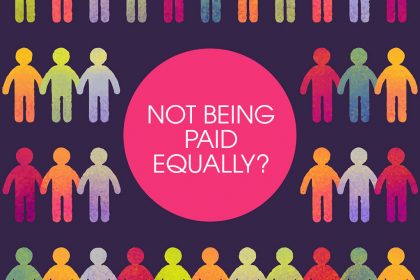How to complain effectively (and get the result you want)
Are you unhappy with a product or service you have paid for? Find out how to complain effectively and get the result you want.
So you’ve bought something and you’re not happy. It’s broken, not what you were expecting or hasn’t turned up at all. Or maybe you’ve paid for a service that didn’t live up to expectations. What do you do?
Surprisingly, according to this infographic 96% of us won’t complain (at least not to the company involved – we’re quite happy to tell our friends and family and warn them not to buy from them in future).
Why you should complain to the business
However, it IS worth complaining to the business concerned. Here are a few reasons why:
- It gives the company the chance to rectify the problem (they may not be aware of it).
- You may get a repair, refund, replacement or compensation.
- You can help ensure that other customers don’t have the same problem in future.
Simply complaining to your friends won’t achieve the first two points, and will have limited impact on the third.
So if complaining is important, how can you do it effectively and get the results you want, with minimum stress? Here are some suggestions that have worked for us.
Go to customer services
Your first port of call is usually your point of contact at the business, or customer service if its a large company (all-too often a foreign call centre). Politely explain what is wrong, and what you would like (a refund, repair or replacement).
Be reasonable and patient, but don’t let them fob you off. If you’re not happy with the response of the person you are speaking with, ask to speak to their supervisor or manager.
Before you call, make sure you’re clear about your rights. Do you genuinely have a valid grievance? Are you still within within any time limits for complaining? And are there any laws or company promises that reinforce your position?
Knowing your rights can sometimes mean the difference between getting the result you want (as long as it’s reasonable) and a long and fruitless battle. When our fridge broke down a year out of warranty, the company we bought it from said they couldn’t help. But once we politely explained our consumer rights, they sent an engineer out to fix it free of charge.
Here are some useful resources on your consumer rights, and how to complain:
- Check out your rights on gov.uk
- Money Saving Expert has more on rights and how to complain
- Citizen’s Advice has information about the Consumer Rights Act
- Which has useful consumer rights information too
- The Financial Ombudsman also has good advice on complaining
Go to social media
If you don’t have any joy with your first port of call, take a look at the company’s social media accounts. Do they regularly update and monitor their Facebook page? Are they a keen tweeter? If so, write a polite message on there, briefly explaining the crux of your complaint and their lack of action so far, and politely ask for help.
If they’re proactive, they’ll respond quickly and ask you to contact them privately – no sane business want a disgruntled customer airing their grievances in public.
This can sometimes get you the result you want, as we found out last year. One of our Kickstart members complained on our Facebook page that she was miss-sold a year-long SEO package with a large company, and they refused to cancel it, transfer her to another package, or refund her.
She’d called the company several times but they wouldn’t budge. So we decided to see if we could help. Tweeting from our account (with a current 25,000 followers) we publicly asked the company why they refused to help a small business they had miss-sold to. They quickly responded, and less than an hour later, our club member had the package cancelled and all fees refunded.
Go to the top
If you draw a blank with your first port of call, and their managers/supervisors, there is still another option – go to the top. Google the CEO of the company you are having a problem with and their email address, and get in touch.
It is unlikely the CEO will read or deal with your complaint personally, but their executive office will. When I get REALLY stuck this is my go-to tactic. And so far it’s always worked. You’ll be amazed at the power of the executive office to achieve otherwise-impossible feats, such as get services reconnected, products delivered and refunds authorised.
Here’s an example of how the CEO’s office can work miracles. Some time between Christmas and 4 January this year, my grandmother’s phone line went down. She’s 90 years old, lives alone in the countryside and has diabetes and hearing and vision problems. So her landline is literally her lifeline.
I logged her problem as a welfare case on 4 January, which meant it must be fixed within 24 hours. Two and a half weeks later (during which I called their customers services call centre almost every 48 hours) it still wasn’t fixed and their customer services manager said they had no idea when something would be done.
So I emailed the company’s CEO. They replied almost instantly and within days the phone line was miraculously fixed – achieving a physical impossibility according to the information I had previously been given by the call centre.
I have no doubt that if I hadn’t gone straight to the top, the line would still be broken now. So don’t hesitate to email the CEO if you don’t get satisfaction lower down the company.
Go to the press
If all else fails and you don’t have any joy from the CEO’s office (or the business involved is too small to have a CEO) then your next option is to go to the press.
It’s not a tactic that’s guaranteed to succeed – the press may not decide to cover your story, and if they do, the company may still refuse to budge. And if you do decide to go public with your complaint, make sure you really do have a genuine reason for feeling aggrieved, and that you have given the company ample opportunities to fix the situation.
So who should you approach with your story? That depends on your problem:
- If it’s an issue with a local business, approach your local newspaper or a local blog.
- If it’s a consumer issue, try the consumer/money sections of national newspapers or magazines.
- If it’s a big story, approach the general national press.
I have got help from (and coverage in) The Times and a local paper for consumer issues in the past, and achieved successful outcomes both times.
Before you approach the press, Google your problem and check whether you’re part of a bigger issue with this company or product. If so, it’s worth contacting other people and approaching the press as a group – it can make a bigger story for them.
Remember that the media will be looking for stories with public interest, so try to find hooks or angles in your issue that may make your story more ‘interesting’. For example, are you a single mum? Has the problem cause physical or mental harm? Are you significantly out of pocket? Has the impact rippled out to others?
Anything that will get a journalist interested, help them sell it into their editor and make people want to read it.
Go to others with the same problem
And finally, if you STILL draw a blank, get together with other disgruntled customers of the business, or unhappy purchasers of a product or service and leverage your group power.
As just mentioned, being part of a wider issue makes it easier to get press coverage – the more people it impacts, the more they’ll be interested. It also gives you more negotiating power with the company or companies involved.
If your personal problem is part of a major or nationwide issue (such as PPI) you could even see new legislation brought in to prevent people experiencing the same issues in future.
Just one word of warning though – while it can be helpful to join an organisation of equally disgruntled consumers, beware of being seduced by companies or legal firms offering (or promising) to take on your issue for you. Too many people have seen their PPI refunds, for example, eaten into with huge interest charges and other fees from opportunistic companies.
We’d always recommend checking out sites like Money Saving Expert before paying someone else to help you (or signing any contract with them). To use the PPI example again, Money Saving Expert actually guide you through the simple process of applying for your refund for free.
Some basic rules of complaining
Whomever you’re complaining to, there are a number of basic common sense rules that are worth remembering:
- Always be polite – yes your patience may be short after the tenth phone call chasing a problem, but getting angry or rude isn’t going to move you forward any faster, and could just put your case to the bottom of the pile. If you’re polite and respectful you’re more likely to get the best of whoever you’re talking to, and even help them care about your problem.
- Be persistent – however demoralising it may feel at times, keep up with the (polite) calls and/or emails and be firm in them. If a company realises you’re not going to go away, back down or accept less than you feel fair, they’re more likely to respond. They’ll also want to get you off their list as quickly as possible, if nothing else just to free up their inbox!
- Don’t exaggerate – if you inflate the issue, or blatantly lie, you risk undermining your genuine reason for complaint and could even be written off as a chancer. So stick to the facts, and be honest about the problem and its impact. Yes you can highlight the worst of the scenario, but ensure you stick to the truth.
- Know your rights – I know we’ve already covered this but it’s worth saying twice. If you understand your rights, your position is much stronger. You’ll know what you can complain about, how the company should respond, and what you can expect in way of recompense.









